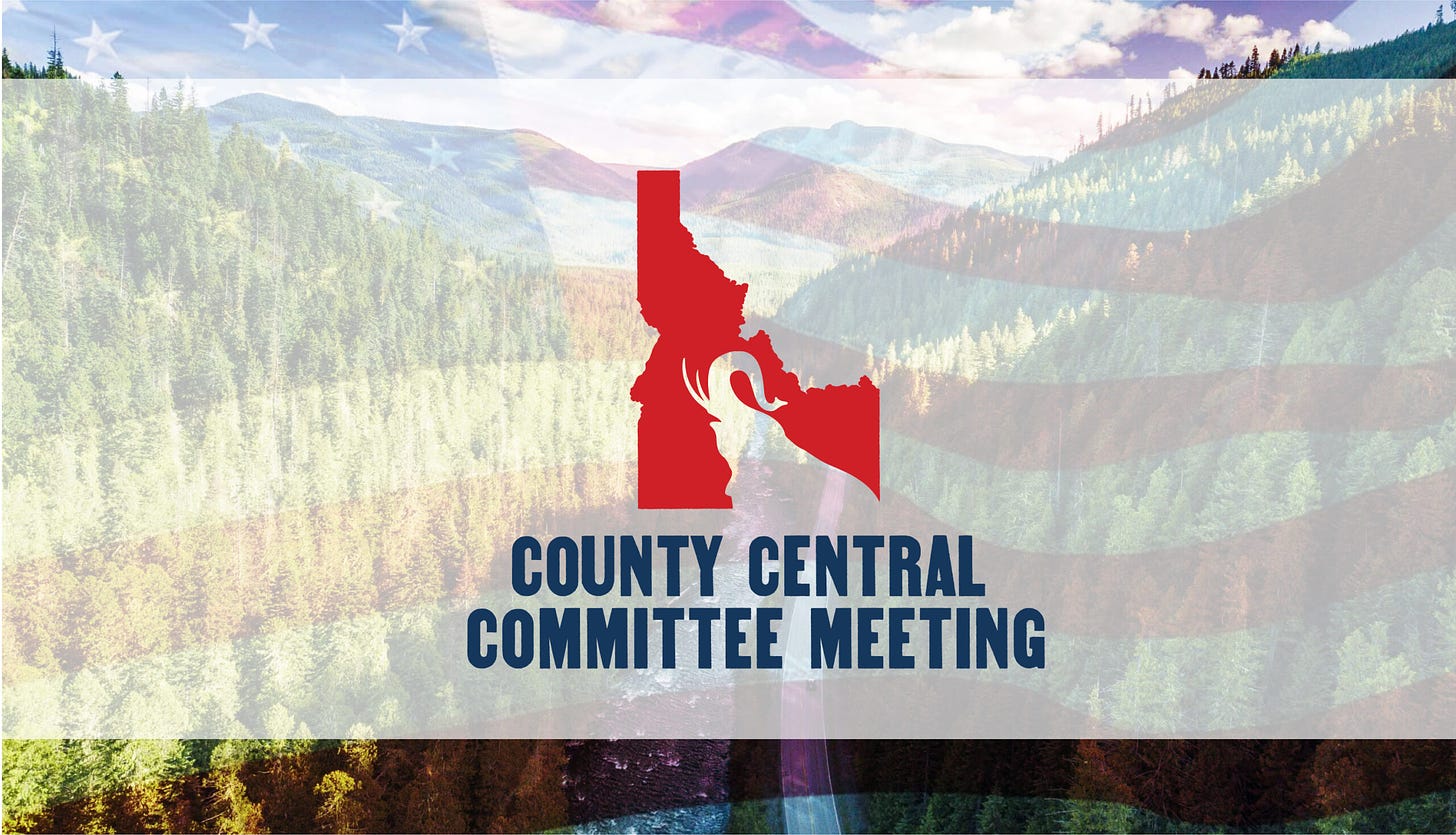What county party chairs do
They do the grunt work of political parties; who the heck are they?
One of my goals in attending the Republican National Convention in Milwaukee this summer was to spend some time interviewing local GOP party officers from across the country and getting a better sense of just what they do. After all, I’ve spent a lot of time surveying these county chairs over the past two years, and it seemed wise to just have some open-ended conversations and let them explain their role in the party.
I ended up having lengthy conversations with five county chairs from five different states (Florida, Missouri, Texas, Washington, and West Virginia). I’m just identifying them by their states here for now. But I run through what they see as the main aspects of their work as chair.
A key thing to recognize is that being a county party chair, in almost all states and parties, is uncompensated. As the chair from Texas said, “Being a county chair, much like being a state chair, it one of the most thankless tasks in the western hemisphere. You almost never get praise or complements or even gratitude, all you do is hear complaints.” Agreed the Washingtonian, “It’s been a major sacrifice. It’s a calling.” The Missourian described it as “the busiest job that never paid.”
For the most part, the various tasks of a chair include: candidate recruitment, media work, fundraising, and managing party meetings.
The Missourian described it as quite a bit of work just to engage other people:
Organizing monthly meetings is the visible part of the iceberg, but there’s a lot of work behind the scenes in terms of trying to get our members to participate more than just one meeting a month. There are some minimum… expectations to be the eyes and ears for the Republican Party in their respective areas. To contribute time and talent to events that we have, whether they’re neighborhood festivals or the Lincoln Day dinner or other events that we put on…. To get other volunteers involved.
The Texan described his job as consisting of three main goals: “One is to win elections, two is to grow the party, and three is to advance conservatism. Every tactic that we put in place has to fit one of those three things or I don’t do it.”
One of the big tasks chairs face is recruiting people for local partisan offices. “Our party is getting older and older,” notes the chair from Washington state. “All these 75 and 80-year old people… How are you going to recruit? Recruiting is probably the number one thing.” The Floridian described a particular effort to help local candidates with startup funds, especially to pay ballot filing fees: “We were writing checks to help them pay their qualifying fees. In the last two cycles, we had a Republican running in every single local race…. You’re not going to win ‘em all. Our strategy was, we’ll put every candidate in the race and let Democrats figure out where we’re going to focus our real efforts.”
Chairs spend a lot of time speaking with reporters and working the local party’s social media accounts. “I’m the only admin on our website,” says the chair from Washington. “99% of everything on [the party] website, I’ve done.”
I asked the chairs how they saw the party changing over the past decade or so. Their responses were interesting.
Texas: “It’s definitely moved in a populist direction, which I don’t love. I’m more about conservatism.…. Populism is about what people want, or think they want. Conservatism is about principle.”
Washington: “In 2020, in our [state] platform, election integrity wasn’t mentioned at all. And in 2024, it was the number four plank…. And all the counties, same thing.”"
Missouri: “When I first started just showing up as a volunteer at meetings, we had very short meetings and not a lot of activity…. The issues were primarily local and state. People were not as… adamant. But as we grew the committee and people became more knowledgeable, we had local issues which did get people engaged — school board elections, health board elections — of course all that’s the result of all the issues that are national instead of local. So that animated activity, which wasn’t there before…. I’m happy to have them all active, but we’ve got some guardrails we’d like to stay within, let’s not get too close to them or go over them.”
West Virginia: “There are principles from 10 or 20 years ago that are in that [platform] that would still hold, but you’d just scratch your head and go, ‘Why did they need to say this?’ There are things today that, 20 years ago, people would never have thought you’d have to actually put in print. You know, boys are boys and girls are girls.”
One last point: The chair from Texas, in particular, lamented some of the factionalism within the Republican Party and especially the rise of what he called “arsonists” — people interested in the fighting and the posturing without the commitment to running an organization:
I’ve worked so hard to build us to where we are now… I’m a stubborn son of a bitch, and I cannot allow an arsonist to come in and burn down the building I’ve built with my hands. I’m not going to be able to dictate 100% who our next chair is, but I really do want to set it up in such a way that it’s someone who will be responsible…. The Arizona state party is a disaster. The Michigan state party has been a disaster…. Georgia’s a disaster…. We’ve got 10 or 12 major counties in our state that have disastrous leadership, that are engaged in a circular firing squad, engaging in purity rituals, not engaging in what it should be about, which is winning elections, growing the party, advancing conservatism.






Just in time for my upcoming class on state party organizations!